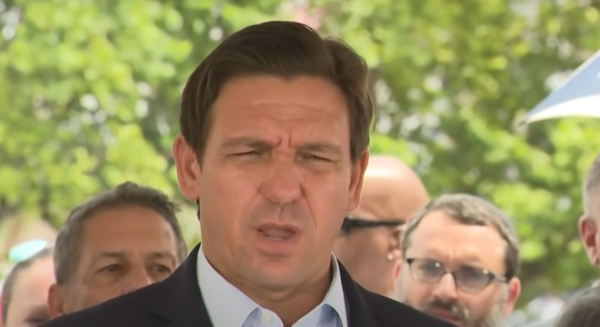‘Dumbfounded’: Florida Gov. Ron DeSantis Unexpectedly Vetoes Widely Supported Bill That Would Have Provided Minors the Opportunity to Have Criminal Records Expunged
On Tuesday, June 29, Florida Gov. Ron DeSantis vetoed a bill that would have provided a way for juveniles to have their records expunged after completing a behavioral program.
The veto shocked lawmakers after the proposal, which supporters say would have removed barriers to housing, education and employment, moved through the legislature with little opposition.
Sen. Annette Taddeo, a supporter of the bill, told the Miami Herald she was “dumbfounded” by DeSantis’ unexpected rejection of the measure.
“I don’t understand why you wouldn’t give an opportunity to a kid to remake their life,” the Miami Democrat said. The bill did not receive a single no vote this session.
Currently, Florida permits minors to expunge first-time misdemeanors upon the completion of a diversion program, but bill 274 would have expanded the laws to include felonies and other arrests beyond their first offense.
In his veto letter, DeSantis shared his concerns about the bill.
“I have concerns that the unfettered ability to expunge serious felonies, including sexual battery, from a juvenile’s record may have negative impacts on public safety,” he wrote.
DeSantis reportedly did not make those concerns known during the annual 60-day legislative session,
The bill would have qualified 26,900 minors — totaling more than 64,343 felony charges, to have their records expunged, according to the Florida Department of Law Enforcement.
Senate Judiciary Committee Chair Jeff Brandes said he was disappointed DeSantis referred to the “most extreme case” in the veto letter.
“They’re not offering diversion to rapes. They’re not offering diversion for extreme sexual assaults,” Brandes said. “But that is what made the veto letter.”
DeSantis, known for his pro-law enforcement stance, attended a conference hosted by the Florida Police Chiefs Association just a day before the veto. The group opposed the bill and believed it could “have a negative impact on public safety,” a representative said in January.
Sen. Keith Perry, a Gainesville Republican who sponsored the bill, said its “critical” for juveniles to have the opportunity to get felonies expunged from their records.
“A felony could be stealing someone’s laptop, and you don’t want someone who is 16 and who stole a laptop to have this felony conviction follow them around,” he said. He acknowledged that DeSantis’ concerns were “legitimate” and said the bill would be re-filed taking the concerns into account to ensure a new version gets signed into law.
DeSantis also vetoed SB 146, which was intended to equip high school students in government classes with the knowledge necessary to take part in “society, government and the political system.” In his veto letter, DeSantis said the bill “risks promoting the preferred orthodoxy of two particular institutions.”
DeSantis did sign into law a police training bill that seeks to set new standards for law enforcement as it relates to de-escalation tactics, use of force and chokeholds.

